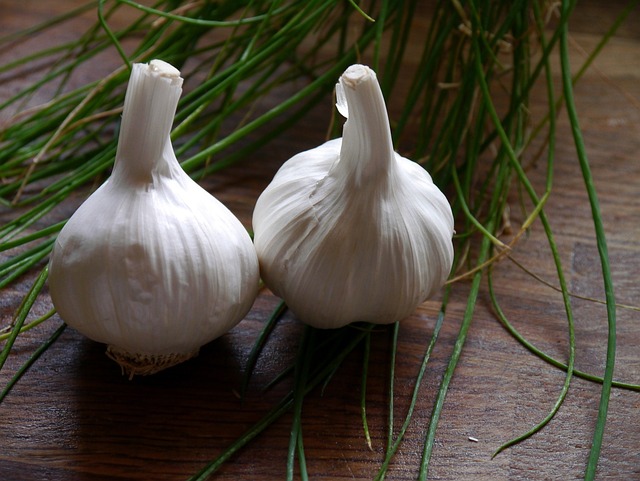Category
Our Best Sellers
-
 Cras viverra rhoncus
Rated 5.00 out of 584.00$
Cras viverra rhoncus
Rated 5.00 out of 584.00$ -
 Suspendisse volutpat massa
Rated 4.00 out of 539.00$
Suspendisse volutpat massa
Rated 4.00 out of 539.00$ -
 In fringilla felis non nulla porta rutrum
Rated 3.00 out of 5
In fringilla felis non nulla porta rutrum
Rated 3.00 out of 578.00$Original price was: 78.00$.65.00$Current price is: 65.00$. -
 Aliquam erat volutpat
Rated 2.00 out of 550.00$
Aliquam erat volutpat
Rated 2.00 out of 550.00$ -
 Suspendisse gravida lacus varius
Rated 1.00 out of 5
Suspendisse gravida lacus varius
Rated 1.00 out of 533.00$Original price was: 33.00$.22.00$Current price is: 22.00$. -
 Théière marocaine artisanale en argent
120.00$
Théière marocaine artisanale en argent
120.00$
-
 Cendrier Authentique et Décoratif
30.00$
Cendrier Authentique et Décoratif
30.00$
-
 Suspendisse vehicula at dui
56.00$
Suspendisse vehicula at dui
56.00$
-
 Aenean non pellentesque mauris
Aenean non pellentesque mauris
68.00$Original price was: 68.00$.55.00$Current price is: 55.00$. -
 Nulla feugiat felis tempor sem
61.00$
Nulla feugiat felis tempor sem
61.00$
Popular
-
 Théière marocaine artisanale en argent
120.00$
Théière marocaine artisanale en argent
120.00$
-
 Cendrier Authentique et Décoratif
30.00$
Cendrier Authentique et Décoratif
30.00$
-
 Aliquam erat volutpat
Rated 2.00 out of 550.00$
Aliquam erat volutpat
Rated 2.00 out of 550.00$ -
 Cras viverra rhoncus
Rated 5.00 out of 584.00$
Cras viverra rhoncus
Rated 5.00 out of 584.00$ -
 Suspendisse volutpat massa
Rated 4.00 out of 539.00$
Suspendisse volutpat massa
Rated 4.00 out of 539.00$


Garlic (Allium sativum) has been cherished for centuries, not only for its distinctive flavor and aroma but also for its myriad health benefits. This versatile bulb is a staple in kitchens worldwide and a cornerstone of traditional medicine. In this article, we will explore garlic’s nutritional profile, its health benefits, culinary uses, and some considerations for incorporating it into your diet.
Nutritional Profile of Garlic
Garlic is low in calories but packed with essential nutrients. A typical serving of raw garlic (about one clove or 3 grams) contains:
- Calories: 4
- Carbohydrates: 1 gram
- Protein: 0.2 grams
- Fat: 0 grams
- Fiber: 0.1 grams
- Vitamins: Good source of vitamin C, vitamin B6, and manganese.
- Minerals: Contains calcium, potassium, phosphorus, and selenium.
Key Nutrients in Garlic
- Allicin: This sulfur compound is responsible for garlic\’s pungent smell and many of its health benefits. Allicin is formed when garlic is chopped or crushed and has potent antibacterial and antiviral properties.
- Vitamins and Minerals: Garlic is rich in several vitamins, particularly vitamin C and B vitamins, which are important for energy metabolism and immune function. The mineral content, including manganese and selenium, contributes to its antioxidant properties.
- Antioxidants: Garlic contains various antioxidants that help neutralize free radicals, reducing oxidative stress and inflammation in the body.
Health Benefits of Garlic
Garlic is widely recognized for its potential health benefits, which are supported by numerous studies. Here are some of the most notable:
1. Heart Health
Garlic has been shown to have a positive impact on cardiovascular health. Research indicates that it can help lower blood pressure, reduce cholesterol levels, and improve overall heart function. The allicin in garlic is believed to contribute to these effects by promoting vasodilation, which improves blood flow and reduces blood pressure.
2. Antimicrobial Properties
Garlic exhibits strong antimicrobial properties against various bacteria, viruses, and fungi. Allicin has been shown to be effective against pathogens such as Salmonella, E. coli, and even some viruses. This makes garlic a powerful ally in supporting the immune system and preventing infections.
3. Anti-Inflammatory Effects
Chronic inflammation is linked to numerous diseases, including heart disease and cancer. Garlic’s anti-inflammatory properties can help mitigate inflammation in the body, potentially lowering the risk of these conditions.
4. Cancer Prevention
Several studies have suggested that garlic may play a role in cancer prevention. The compounds found in garlic have been associated with a reduced risk of certain types of cancer, particularly stomach, colorectal, and prostate cancer. The antioxidants in garlic may help protect cells from damage and inhibit cancer cell growth.
5. Improved Immune Function
Garlic has been used traditionally to boost the immune system. Its antimicrobial properties, combined with its rich antioxidant content, make it a valuable addition to a diet aimed at enhancing immune function.
6. Cognitive Health
Emerging research suggests that garlic may have neuroprotective effects, potentially reducing the risk of cognitive decline and diseases such as Alzheimer’s. The antioxidants in garlic help combat oxidative stress, which is a contributing factor to neurodegenerative diseases.
7. Blood Sugar Regulation
Some studies indicate that garlic may help regulate blood sugar levels. It can improve insulin sensitivity, making it beneficial for individuals with diabetes or those at risk of developing the condition.
Culinary Uses of Garlic
Garlic is incredibly versatile in the kitchen and can be used in countless ways:
1. Raw
Raw garlic can be minced or crushed and added to dressings, marinades, and dips. Its pungent flavor is often appreciated in fresh preparations like salsa and guacamole.
2. Cooked
Garlic can be sautéed, roasted, or added to soups and stews. Cooking garlic mellows its flavor while still retaining many health benefits.
3. Garlic Oil
Garlic-infused oil is a popular culinary ingredient. It can be used for cooking or as a flavorful addition to dressings and sauces. However, caution should be taken when storing garlic oil, as it can promote the growth of botulinum bacteria if not handled properly.
4. Pickled Garlic
Pickling garlic cloves in vinegar can create a delicious condiment that adds flavor to a variety of dishes.
5. Garlic Powder
Dehydrated garlic can be ground into powder, making it a convenient seasoning for various recipes. However, fresh garlic is generally more potent and offers more health benefits.
Considerations for Consumption
While garlic is generally safe for most people, there are some considerations to keep in mind:
1. Digestive Issues
Some individuals may experience gastrointestinal discomfort after consuming garlic, particularly in large amounts. Symptoms can include bloating, gas, and heartburn.
2. Allergies
Though rare, some people may have an allergy to garlic. Symptoms can range from mild to severe and may require avoidance of garlic in all forms.
3. Blood Thinning Effects
Garlic has natural anticoagulant properties, which can enhance the effects of blood-thinning medications. Individuals on such medications should consult a healthcare provider before significantly increasing their garlic intake.
4. Interaction with Medications
Garlic can interact with certain medications, including those for HIV/AIDS and chemotherapy drugs. If you are taking any medications, it\’s best to discuss garlic consumption with your healthcare provider.
Conclusion
Garlic is much more than just a flavorful addition to dishes; it is a powerful ally in promoting health and well-being. With its rich nutritional profile and numerous health benefits, incorporating garlic into your diet can support heart health, boost the immune system, and even reduce the risk of certain diseases. Its culinary versatility allows for a wide range of applications, making it easy to enjoy its benefits. As with any food, moderation and consideration of individual health circumstances are key. Embrace the power of garlic and discover how this humble bulb can enhance both your meals and your health!
Written by hicham
Best offers
Join Risk Free
30 days refund
100% Safe
Secure Shopping
24x7 Support
Online 24 hours
Best Offers
Grab Now
Shipping worldwide
Delivery to all countries of the world.
Know Us

Neque viverra justo nec ultrices dui sapien eget. Gravida cum sociis natoque penatibus. Imperdiet proin fermentum leo vel orci porta non
Read MoreStore Updates



Product Showcase







